High Performance CompetencyModel
The Mentis High Performance Competency Model (HPCM) provides an ethical and evidenced-based foundation for identifying talents by exploring observable and measurable attitudes, behaviours, and knowledge.
Thank you for your interest in exploring High Performance Competency Model
Based on a comprehensive review of 30 years' of scientific and organizational research - we offer a practical & valuable resource to focus outputs from any talent surveys, metrics & analytics
A Scalable Model
Researchers recommend that competencies are grouped hierarchically, such that there will be a core set of competencies, Self, and other sets of competencies which can be built upon with experience as you move to more senior roles. To differentiate competencies associated with managerial roles of different seniority, two additional sets of competencies, People vs Organizational, are included in the model.
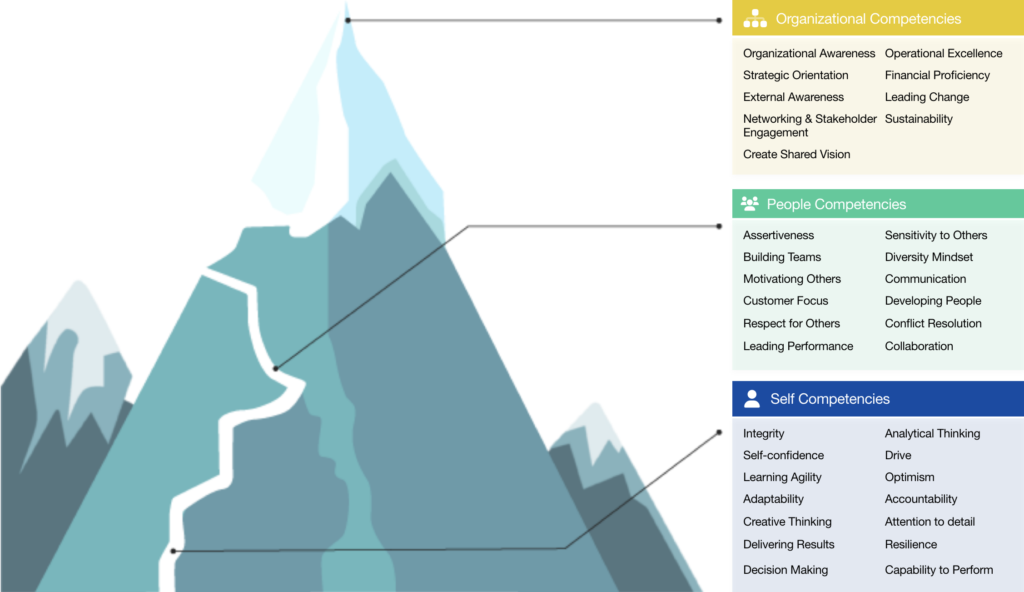
Advantages of the High Performance Competency Model
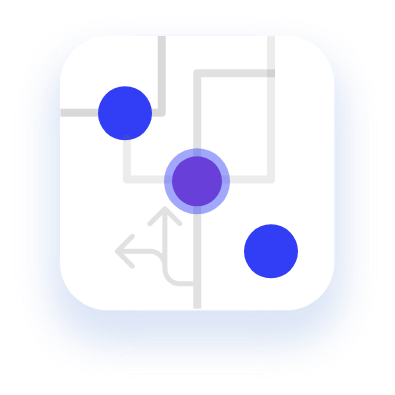
Key behavioral indicators (KBI’s) for more precise definition of expectations

Content is written to ensure simplicity and ease of understanding

Select the appropriate combination of competencies by role and/or level

Behaviorally-anchored scales that research shows leads to more effective and accurate feedback
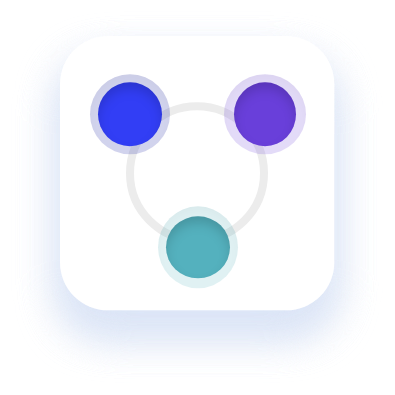
Multi-method is best! Talent MAP groups insights from different sources

Talent Benchmarking Projects to explore and research the talent metrics within your enterprise
A flexible and evidence-based framework for individuals and organizations to identify, develop, and manage talent effectively.
Thank you for your interest in exploring High Performance Competency Model
Three Dimensions of Competency
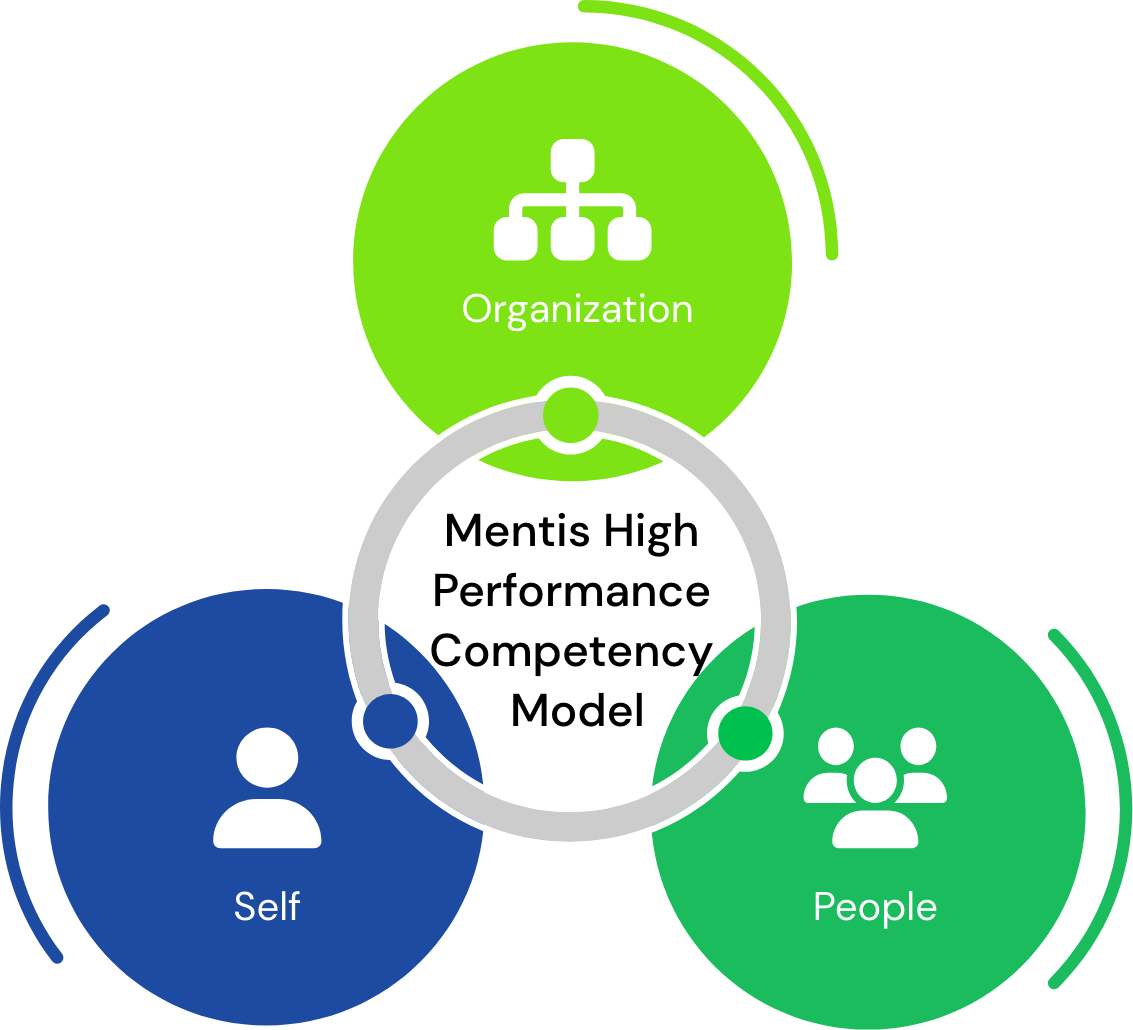
Having a consistent framework is crucial, especially when developing competencies so that they are observable and measurable. That’s where the Mentis High Performance Competency Model (HPCM) comes in.
The HPCM is based on rigorous scientific research and expert opinion, and it captures the attitudes, behaviors, and knowledge necessary for high performance. What’s unique about this model is its ability to cater to people from all backgrounds and the care taken in ensuring it’s future-proof and culturally sensitive. It achieves this by using accessible, everyday language that anyone can understand.
As a result, the HPCM helps individuals and organizations alike understand the essential competencies needed for success and taking action on these more easily. This ensures that everyone is on the same page, making it easier to work together towards achieving goals.
Thank you for your interest in exploring High Performance Competency Model
Navigating to Success: Mapping the Key Competencies for Job Performance
In the modern workplace, determining which attitudes, behaviors, and knowledge are essential for success can be challenging. It’s easy to identify underperforming employees, but it’s often difficult to understand the root cause of their struggles. On the other hand, it can be even more challenging to differentiate between good and excellent performers, as the differences are often subtle but critical.
- It’s essential to identify the strengths and weaknesses of each individual’s competencies to ensure they are matched to the role they’re in. When there’s a mismatch, it leads to disengagement and negatively impacts the individual’s development journey, regardless of their intent.
- This can contribute to a difficult environment for both the individual and the organization, leading to dissatisfaction and turnover. That’s why it’s crucial for businesses to invest in tools and frameworks that help identify the essential competencies for success and ensure that individuals are matched to the right roles. By doing so, companies can create a positive work environment that drives engagement, job satisfaction, and ultimately, long-term success.
Choose Mentis Talent MAP to navigate performance through competencies!

An Overview of the Model
The Mentis High Performance Competency Model (HPCM) focuses on
attitudes, behaviors and knowledge that are observable and measurable.
Integrity
Establishes trust with colleagues by being honest and principled. Is appropriately transparent with co-workers. Respects others’ privacy and keeps sensitive information confidential.
Analytical Thinking
Ability to break down problems, identify complex relationships and critically interpret them; leading to solutions
Self-confidence
Displays appropriate self-assurance and determination. Voices their opinions and ideas confidently, willing to challenge others.
Drive
Recognizes organizational goals and aspirations and identifies how to achieve them, taking action without instruction
Learning Agility
Continuously looking out for opportunities to learn and self-improve. They are keen to embark on novel experiences, are mentally flexible and view mistakes as valuable opportunities to grow.
Optimism
Displays interest and excitement about their work. Identifies with and participates in challenging tasks with optimism and passion.
Adaptability
Easily readjusts and modifies their behavior in novel situations and based on current demands at work.
Accountability
Acts professionally and takes responsibility for their decisions and actions. Is methodical and organized and can be trusted to deliver results at a timely manner.
Creative Thinking
Uses their imagination and ability to invent for the benefit of the organization. Critically assesses the quality of own and others’ ideas and improves upon them using their creativity.
Attention to detail
Performs tasks while recognizing the significance of detail and quality. Is thorough and accurate with work output, identifying and correcting errors.
Delivering Results
Achieves their goals and produces high quality work by remaining motivated and focused when overcoming obstacles.
Resilience
Maintains composure by recognizing their thoughts, emotions and behavior. Demonstrates the ability to overcome disappointments and to succeed in challenging situations. Maintains a healthy balance between life and work.
Decision Making
Identifies possible solutions to manage problems effectively and efficiently by using good judgement when weighing up potential positive and negative implications. When faced with important decisions they do not hesitate to act.
Capability to perform
Possesses a strong and effective capability in their role using the key skills and knowledge necessary to succeed.
Assertiveness
Capacity to appropriately assert own ideas and opinions and those of others. Willing to support and challenge other people in a constructive and inclusive manner, defending what appears to be right. Demonstrates an appropriate level of confidence in their own abilities.
Sensitivity to Others
Shows empathy and understanding for the reactions and choices of others and responds in an appropriate way. Enables the building of effective trusted relationships with people.
Building Teams
Brings the right people together to form a high-performing team at the right time to achieve organizational goals.
Diversity Mindset
Understands and appreciates diversity in people, values and cultures. Recognizes the important of and creates an inclusive environment where people of different abilities and backgrounds can thrive. Respects social customs and expectations.
Motivating Others
helps others to set a vision for goals and outcomes. Adapts motivational style based on individual needs and goals. Provides timely, constructive feedback to others to increase confidence. Encourages others to put sustained effort into achieving their goals and objectives.
Communication
Ability to actively listen and express oneself clearly and effectively through verbal and non-verbal communication channels to one or groups of individuals.
Customer Focus
Orientation towards serving and satisfying client’s needs and expectations
Developing People
Recognizes potential in others and provides learning opportunities including mentoring and timely feedback on progress towards developmental goals and growth.
Respect for Others
Respects all people, accepting individual differences, viewing and treating others consistently with fairness and without favoritism.
Conflict Resolution
Recognizes and acknowledged signs of a conflict situation, and promotes open-minded cooperation. Listens and makes effort to help others understand opposing viewpoints and works to resolve conflict in a positive, fair, and tactful way
Leading Performance
Supports others in achieving a high level of performance. Tracks progress and gives feedback to ensure that organizational goals are met. Ensures accountability for performance.
Collaboration
Maintains positive and productive relationships by working effectively with others towards a common mission, values and goals. Shares knowledge and information with others and considers their contributions.
Influencing & Persuasion
Recognizes others’ opinion or position and considers this in efforts to influence or persuade. Uses their skills and style to convince others to change their attitudes, thoughts or actions, with the intention to achieve positive change or benefit.
Negotiation
Plans in advance of negotiations. Builds rapport effectively when negotiating and seeks to understand all parties’’ positions appropriately communicates intentions and desired outcomes, settling disagreement with a common resolution that is beneficial to everyone.
Organizational Awareness
Awareness and understanding of an organization’s politics, culture, distribution of power and influence as well as using this ability to achieve organizational objectives.
Operational Excellence
Execution of the organizational plans and strategy, managing operational risk, monitoring process improvement, and ensuring consistent quality of processes and outputs.
Strategic Orientation
Establishes plans for the long-term aligning the organization with expected future contexts and requirements. Recognizes and integrates pioneering ideas and approaches to strategic decision making.
Financial Proficiency
Knowledge and expertise in financial topics required for their role. Understands and applies e.g. budgeting, reporting and forecasting, drivers for profitability or efficiency, in a proficient way. Makes fiscally prudent decisions that are beneficial to the business or organization.
External Awareness
Possesses an appropriate understanding of the context in which the organization operates and applies this knowledge to influence and guide actions. This may include relevant political, cultural, economic, human, ecological, technological, consumer, legal, health and social issues.
Leading Change
Identifies opportunities for change in the organization. Is willing to take risks to improve the organization by evaluating and managing change. Helps implement change effectively by creating an organizational culture that is supportive and adaptive in embracing transformation.
Networking & Stakeholder Engagement
Cultivates environments that encourage collaborative networking practices. Understands and engages with stakeholder expectations effectively. Recognizes networking opportunities and builds strategic alliances with internal and external individuals and organizations
Sustainability
Influences the economic, environmental and social purpose of the organization within its external environment. Works towards ensuring organizational continuity through sustainable management practices and preserving resources. Empowers and rewards others to make choices and decisions to delver sustainability, including processes to monitor success
Create Shared Vision
Communicates strategy and vision to colleagues. Inspires others to strive towards collective organizational goals and a common mission.
Behavioral Rating Scales
The Mentis High Performance Competency Model (HPCM) focuses on capturing
attitudes, behaviors and knowledge that are observable and measurable.
Example of a BARS – Learning Agility
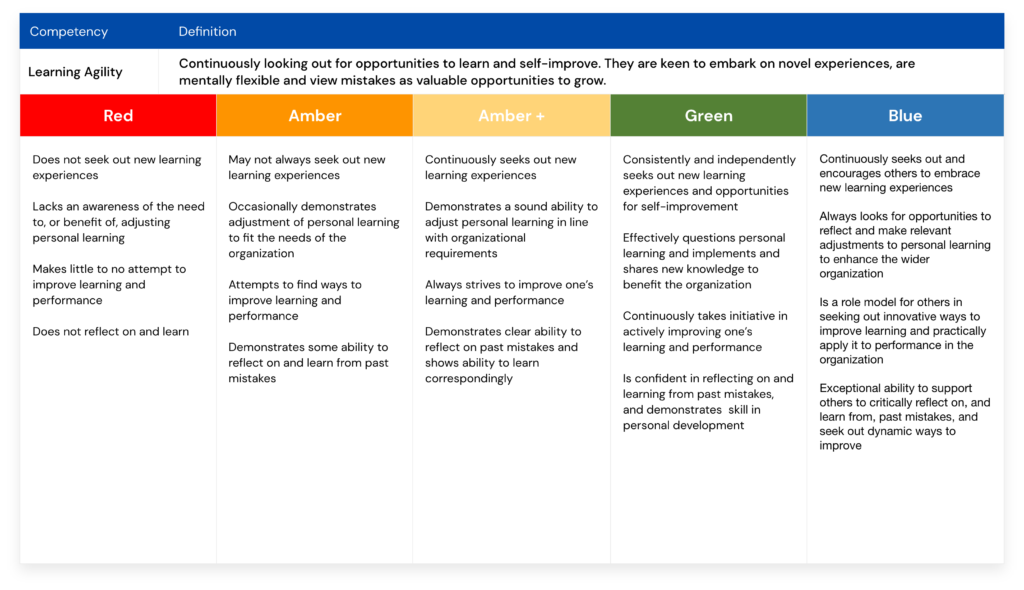
“We worked with Mentis during our Leadership Development program and found them to be extremely professional and helpful in giving us deep, valuable and data driven insights on the developmental areas of our Leadership cohort which helped to target strategic developmental programs in a cost effective manner to achieve some fantastic ROI.”
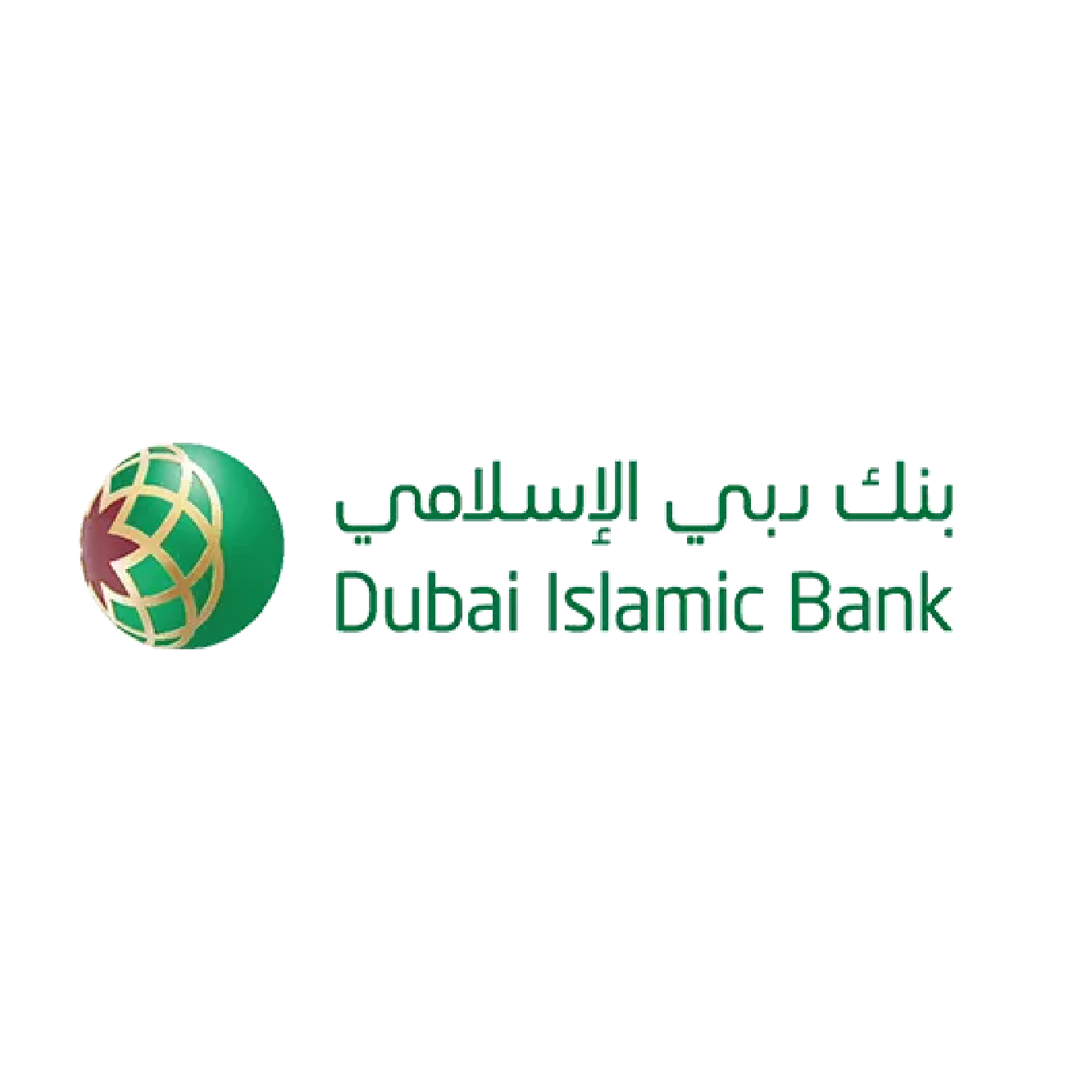
Joseph Mendes, VP
Head of Performance and Rewards, Dubai Islamic Bank
“I will apply this tool to develop the leasership team and to make them aware of the benefits I got from it.”

Suchada Vichitvanichphong.
Senior Vice President – People Capacities, FWD Insurance



